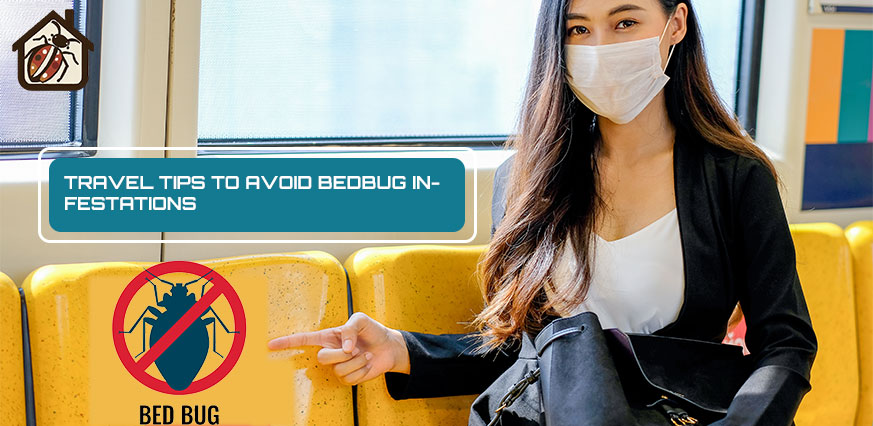
Travel Tips to Avoid Bedbug Infestations
Ah, the thrill of a trip! creating priceless experiences while discovering new places and people. Bed bugs, on the other hand, are one unwanted vacation companion that nobody wants to bring home. If these annoying creatures travel along with you, they can swiftly transform a wonderful vacation into a nightmare. So do not worry! You can avoid bed bugs and fully enjoy your trip with a little forethought and prudence. We’ll go over some useful travel advice to help you stay away from bed bug infestations in this post.
The History of Bed Bugs: From Ancient Pests to Modern Challenges
Bed bugs have plagued humans for thousands of years, with origins dating back to ancient Egypt and Rome. These insects thrived during the Middle Ages due to close living conditions. Advances in pest control in the 20th century temporarily reduced their numbers, but the banning of DDT and increased travel led to a global resurgence.
Modern challenges include their resilience, adaptability, and ability to hide. Integrated pest management combines chemical and non-chemical methods for control. Education and public awareness are crucial tools.
What is bedbug infestation?
An infestation of bed bugs happens when a significant number of these blood-feeding insects take up residence in sleeping areas. They hide throughout the day and emerge at night to feed on human blood, which results in itchiness from their bites. Because they reproduce quickly and may hitch rides on objects, infestations spread quickly. It is difficult to get rid of infestations; it calls for cleaning, vacuuming, insecticides, and heat treatments. Avoiding the difficulty and inconvenience of dealing with these pests requires early discovery and preventive measures.
You may also like:
Travel Tips To Avoid Bed Bug Infestation
To prevent bedbugs from following you home after a trip, take a few steps. Bedbugs may readily conceal themselves in clothing, luggage, and other personal objects.
- Inspect Your Accommodation
Before you even unpack your bags, take a few minutes to inspect your accommodation. Bed bugs are experts at hiding, so check the mattress, headboard, and even the seams of upholstered furniture. Keep an eye out for tiny reddish-brown bugs or their shed skins. If you spot any signs, request a room change immediately. It might seem like a hassle, but prevention is better than dealing with an infestation later.
- Elevate Your Luggage
Bed bugs often reside close to the ground, so elevate your luggage on a luggage rack or a hard surface. Avoid placing your bags on the bed, carpet, or upholstered furniture, as this reduces the chances of them making their way into your belongings.
- Use Protective Covers
Consider investing in bed bug-proof luggage liners and mattress encasements. These covers create a barrier that bed bugs can’t easily penetrate, offering an added layer of protection for your belongings and a more peaceful night’s sleep.
- Keep Clutter to a Minimum
Bed bugs love hiding in clutter. Keep your belongings organized and your clothes in sealed plastic bags. This not only makes it easier to spot any unwanted visitors but also limits the potential hiding spots for bed bugs to lay their eggs.
- Wash Your Clothes After Travel
Once you return from your journey, don’t leave your suitcase sitting around. Instead, unpack and wash all your clothes, even if you didn’t wear them all. Use hot water and high heat in the dryer to kill any potential bed bugs or eggs that may have hitched a ride.
- Avoid Secondhand Furniture
As tempting as it might be to bring home that unique souvenir or vintage find, be cautious when considering secondhand furniture. Bed bugs could be lurking within the seams or cracks, waiting to infest your home. If you do decide to bring something home, inspect it thoroughly before bringing it indoors.
- Stay Informed
Stay informed about the latest bed bug trends and infestations in your travel destination. Online reviews and forums can be valuable resources to gauge the cleanliness and reputation of accommodations. If others have encountered bed bugs at a certain hotel, it’s best to steer clear.
- Use Bed Bug Traps
Consider using bed bug traps designed for travel. These traps can be placed under the legs of your bed, capturing any bed bugs that attempt to climb up. While they won’t prevent an infestation, they can give you an early warning and peace of mind.
FAQs:
Can bed bugs survive travel?
Where do bed bugs hide when traveling?
What can I spray on my luggage for bed bugs?
Is there a spray to prevent bed bugs?
Will bed bugs suffocate in plastic bags?
CONCLUSION:
Bed bugs may cause you to have second thoughts about traveling, but you shouldn’t let them stop you from doing so. You may significantly lower your chance of bringing these undesirable visitors home by heeding this travel advice and exercising caution. As you travel, keep in mind that a little prudence may go a long way toward reducing anxiety. Therefore, prepare your travel plans, keep up with current events, and avoid bed bugs.
